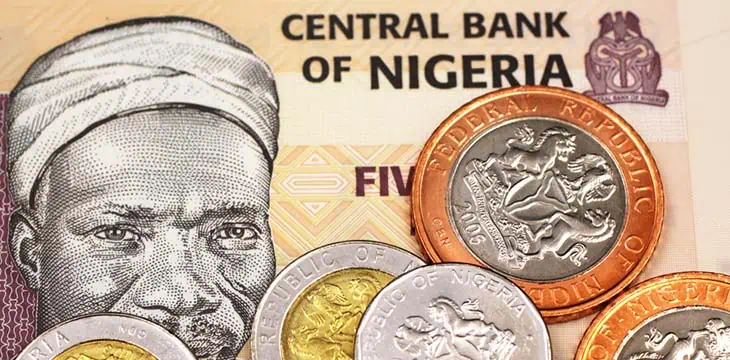|
Getting your Trinity Audio player ready...
|
Nigeria’s central bank digital currency (CBDC), the eNaira, doesn’t pose a threat to the country’s financial stability, the central bank says.
Two weeks ago, the Central Bank of Nigeria (CBN) published a report on the eNaira and its impact on financial stability, monetary policies, commercial banks, etc. However, it now claims that the report was misrepresented by media outlets to paint the digital currency as a threat to the West African country.
In response, CBN’s Corporate Communications Director Isa AbdulMumin refuted the “unconvincing” claims “to ensure that misunderstandings are not fostered.”
PRESS RELEASE: eNaira No Threat To Financial Stability pic.twitter.com/MYwxUoHvWe
— Central Bank of Nigeria (@cenbank) October 9, 2023
The media reports stem from a lack of understanding of the central bank’s report, says Isa. Titled “Economics of Digital Currencies: A Book of Readings,” the report was meant to give Nigerians a better understanding of the eNaira and debunk some of the common misunderstandings.
In its report, CBN acknowledged that the eNaira could somewhat threaten financial stability.
“On the other hand, CBDCs can affect existing financial market structures and business models, thus posing risks to financial stability, particularly via the disintermediation of banks,” says the report. Although it clarifies that the impact would be minimal even in the medium term.
However, some local outlets, including some national newspapers, focused on the risks the eNaira poses to financial institutions.
“The eNaira structure continues to evolve and undergo modifications targeted at improving the user experience across all interfaces. We encourage Nigerians to embrace the technology for, amongst other things, greater financial inclusion,” Isa now says.
The eNaira has struggled to attract Nigerians despite the country being Africa’s leading digital asset market. As CoinGeek previously reported, there’s widespread distrust in the CBDC. eNaira has also been widely marketed to the young, tech-savvy, and educated Nigerians, the demographic that needs it the least. Initiatives like availing the digital currency via USSD codes could go a long way as they target low-income Nigerians without smartphone access.
The naira’s rapid value depreciation hasn’t helped in eNaira adoption. The West African country is now probing the possible use of the U.S. dollar and other foreign currencies as legal tender to cushion Nigerians against the depreciation of the naira. Other African countries that have gone this route have not fared well, including Zimbabwe, which has struggled for over a decade with its volatile currency.
To learn more about central bank digital currencies and some of the design decisions that need to be considered when creating and launching it, read nChain’s CBDC playbook.
Watch Domineum’s Mohammed Jega: We’re taking Bitcoin SV to Africa

 09-08-2025
09-08-2025 





